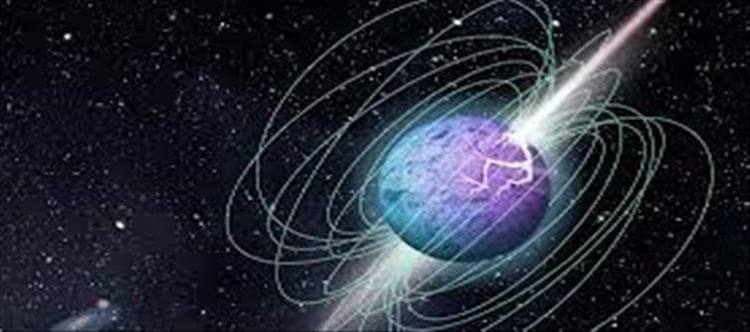
There are many secrets hidden within the universe, about which even scientists have not been able to understand properly till date. Space has always been the center of curiosity for humans. The universe is infinite and limitless in which millions of secrets are hidden. With the increase in the scope of science, the veil of the mystery of the universe has also been raised. Astronomers are engaged in solving the mysteries related to space. Now in the meantime, a very shocking news related to space has come to the fore, which has surprised the scientists.
.jpg)
Scientists have discovered a neutron star in space which is 1300 light years away from Earth. Researchers say that this star will help in understanding the star system. A strange pulse emanating from the Vela-X1 region of the galaxy caught the attention of Manisha Caleb, a lecturer at the university of Sydney, and the Miratrap team.
Lecturer Manisha Caleb told that this pulse lasted for about 300 milliseconds. He says that if the data of this area is searched deeply, then records of other pulses have also been found. He said that from this data we can get information about a new class of stellar objects. Researchers say that a neutron star is responsible for the pulse PSR J0941-4046.
.jpg)
He has told that it has got the characteristics of a pulsar or a magnetar. The extremely dense remnants of a giant collapsing star are called pulsars. Usually radio waves are emitted from their poles. As the star rotates, the pulse is often measured from Earth.
.jpg)
However, when the researchers looked at the pulse length, they were surprised. However, the longest rotation of just 23.5 seconds has been observed from the pulsar. Scientists believe they have discovered a new class of radio-emitting objects. The results of this research have been published in Nature Astronomy.
The team of scientists has found this neutron star in 'Graveyard'. This is the special region of space from where scientists have got PSR J0941-4046. According to the theory, neutrons are full of stars. That's why not as active or not at all active.

Scientists believe this is because the radio signal is still being emitted from PSR J0941-4046. These have a type of pulse 'quasi-periodic' which may give more information about how PSR J0941-4046 works. The biggest thing is that scientists are not sure that it is happening that it is a signal emitting object.




 click and follow Indiaherald WhatsApp channel
click and follow Indiaherald WhatsApp channel